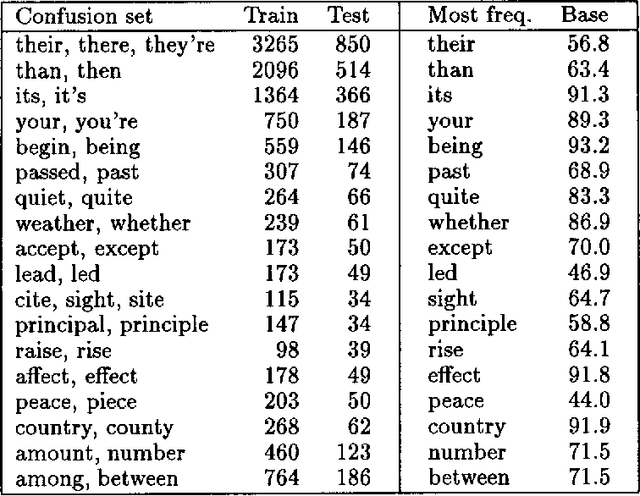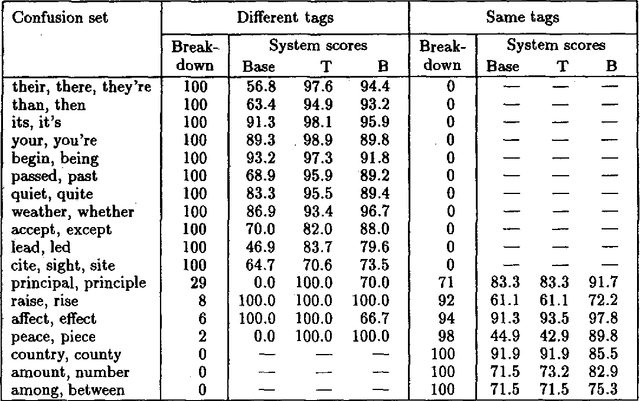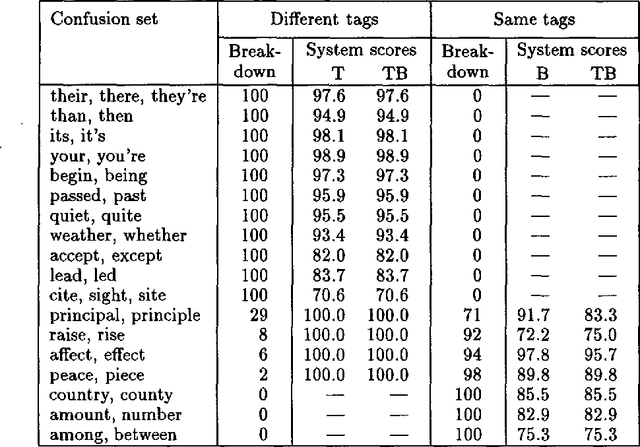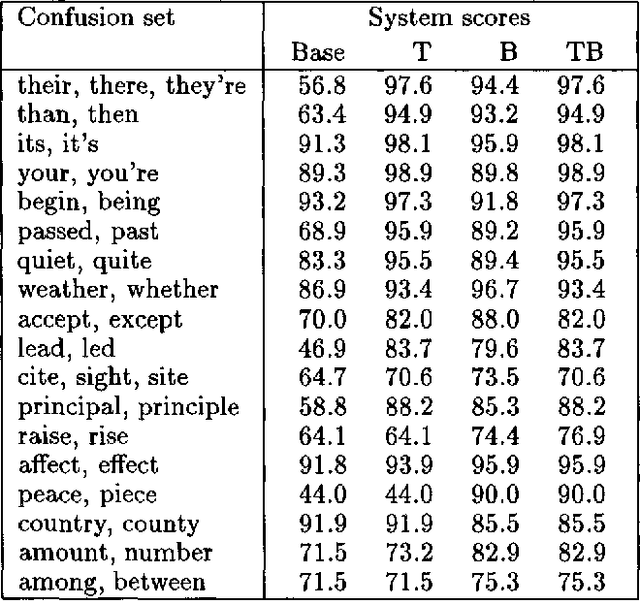Combining Trigram-based and Feature-based Methods for Context-Sensitive Spelling Correction
Paper and Code
Jun 03, 1996



This paper addresses the problem of correcting spelling errors that result in valid, though unintended words (such as ``peace'' and ``piece'', or ``quiet'' and ``quite'') and also the problem of correcting particular word usage errors (such as ``amount'' and ``number'', or ``among'' and ``between''). Such corrections require contextual information and are not handled by conventional spelling programs such as Unix `spell'. First, we introduce a method called Trigrams that uses part-of-speech trigrams to encode the context. This method uses a small number of parameters compared to previous methods based on word trigrams. However, it is effectively unable to distinguish among words that have the same part of speech. For this case, an alternative feature-based method called Bayes performs better; but Bayes is less effective than Trigrams when the distinction among words depends on syntactic constraints. A hybrid method called Tribayes is then introduced that combines the best of the previous two methods. The improvement in performance of Tribayes over its components is verified experimentally. Tribayes is also compared with the grammar checker in Microsoft Word, and is found to have substantially higher performance.
 Add to Chrome
Add to Chrome Add to Firefox
Add to Firefox Add to Edge
Add to Edge